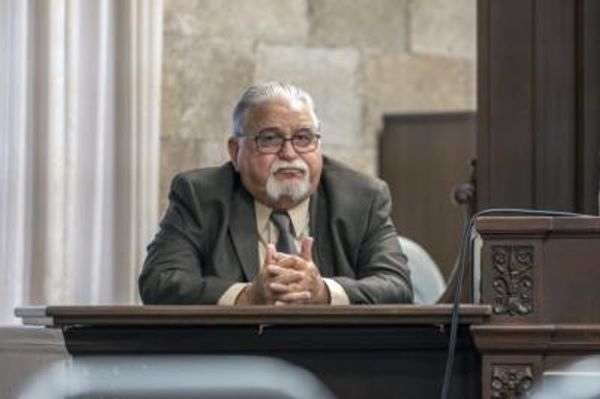
A man serving a life sentence for stabbing his own mother was able to view and share Isis propaganda from prison, it has emerged.
Officials told The Independent there was “no evidence” that inmates jailed with Abdul-Rehman Gul were radicalised after more than 600 pieces of extremist material were found on a hidden phone.
The 23-year-old was handed an extra three years in prison on Friday after admitting disseminating terrorist publications.
The Old Bailey heard he was arrested after a smartphone was found hidden in a stereo during a search of his cell in Aylesbury Young Offender Institution in May 2017.
Investigators found it contained hundreds of images of terrorist propaganda, including Isis execution videos, jihadi emblems and photos of Osama Bin Laden.
Gul had used the phone to talk to other extremists on the encrypted Telegram app, which has become the main platform for official Isis propaganda.
Prosecutors said he used it to communicate with other prisoners and share and discuss the “horrifically violent” footage.
Gul had obtained propaganda from Isis’s video arm, including one titled “slaughterhouse style mass killing Islamic State”.
The Old Bailey heard he disseminated an Isis supporter’s manual entitled “How to Survive in the West”, which includes advice on obtaining weapons and evading the security services.
During a conversation in May 2017, he also asked for a jihad manual and a “popcorn” recipe, which is slang for bombs.
He went on to request screenshots of the pages, explaining he was in jail for three stabbings, the court heard.
Prosecutor Alistair Richardson told how Gul had shared material of the “most graphic and grotesque nature”, including “horrific” execution videos.
But when he was interviewed by police, Gul claimed the phone was not his and had been shared amongst inmates.
Quizzed about messages referring to three stabbings, he replied: “Sh**t you catched me out (sic).”

The defendant, who is now at HMP Woodhill, admitted five charges of disseminating terrorist publications in April.
Handing him a further three years in jail, Judge Richard Marks QC said: “It is of course a clearly aggravating feature that you committed this offending whilst in prison.
"In breach of prison rules, you were in possession of a mobile phone."
He continued: "It would appear even now you do not appreciate the seriousness of the offences for which you fall to be sentenced, bearing in mind your assertion that this material was freely available on the internet."
Judge Marks added that although the material was extreme in nature, a pre-sentence report had concluded that Gul himself has not been radicalised while in prison and does not hold an extremist mindset.
Gul had previously been sentenced to life imprisonment, with a minimum of four-and-a-half years, for a knife attack on his mother and two other girls in 2016.
Prior to being convicted of the terror offences, he had been eligible for parole.
Gul will also serve an additional year on extended probation, and be subject to a 10-year terrorism notification order.
Detective Chief Superintendent Kath Barnes, head of Counter Terrorism Policing South East, said: “There is absolutely no excuse for sharing terrorist and extremist footage and those already in prison are not exempt from this.
“Investigators with significant experience of the violent and sickening videos peddled by Isis described some of the footage as the most graphic they had come across, which demonstrates the extent of Gul’s mind-set.”
She pledged to work alongside prisons to ensure anyone distributing propaganda is brought to justice.
A Prison Service spokesperson said: “We have spent millions of pounds since this incident in 2017 on improving security across the prison estate to stop the use of mobile phones.
“There is no evidence that other prisoners at HMYOI Aylesbury were radicalised.”
The government recently announced the introduction of new technology to track mobile phones smuggled into prisons, which can also be used for illicit activity like drug dealing.
Additional reporting by PA







